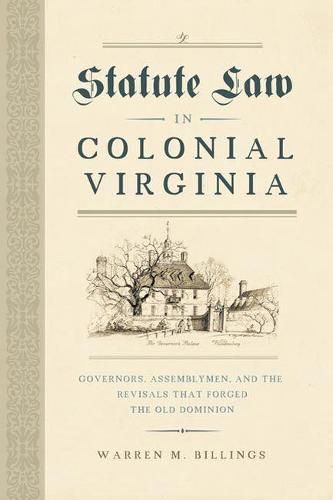Readings Newsletter
Become a Readings Member to make your shopping experience even easier.
Sign in or sign up for free!
You’re not far away from qualifying for FREE standard shipping within Australia
You’ve qualified for FREE standard shipping within Australia
The cart is loading…






Between 1632 and 1748, Virginia’s General Assembly revised the colony’s statutes seven times. These revisals provide an invaluable opportunity to gauge how governors, councilors, and burgesses created a hybrid body of colonial statute law that would become the longest strand in the American legal fabric. In Statute Law in Colonial Virginia, Warren Billings presents a series of snapshots that depict the seven revisions of the corpus juris the General Assembly undertook. In so doing, he highlights the good, the corrupt, and the loathsome applications of broad legislative authority throughout the colonial era. Each revision was built on prior written law and embodies the members’ legal knowledge and statutory craftsmanship, revealing their use of an unbridled discretion to further the interests they represented. Statutes undergirded Virginia’s evolving legal culture, and by examining these revisals and their links, Billings casts light on the hybrid nature of Virginia statute law and its relation to English laws.
$9.00 standard shipping within Australia
FREE standard shipping within Australia for orders over $100.00
Express & International shipping calculated at checkout
Between 1632 and 1748, Virginia’s General Assembly revised the colony’s statutes seven times. These revisals provide an invaluable opportunity to gauge how governors, councilors, and burgesses created a hybrid body of colonial statute law that would become the longest strand in the American legal fabric. In Statute Law in Colonial Virginia, Warren Billings presents a series of snapshots that depict the seven revisions of the corpus juris the General Assembly undertook. In so doing, he highlights the good, the corrupt, and the loathsome applications of broad legislative authority throughout the colonial era. Each revision was built on prior written law and embodies the members’ legal knowledge and statutory craftsmanship, revealing their use of an unbridled discretion to further the interests they represented. Statutes undergirded Virginia’s evolving legal culture, and by examining these revisals and their links, Billings casts light on the hybrid nature of Virginia statute law and its relation to English laws.